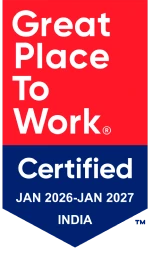| Conference: | Verification Futures 2025 (click here to see full programme) |
| Speaker: | Sohil Sri Mani Yeshwanth Grandhi |
| Presentation Title: | Overcoming the Challenges of Blending Hardware Verification Expertise with AI and Machine Learning |
| Abstract: | Verification complexity is exploding. While traditional methods are the bedrock of quality, new technologies like Machine Learning (ML) and Large Language Models (LLMs) offer powerful, but distinct, advantages. The challenge is knowing which tool to use—and when. In this talk, I’ll draw on my experience at Intel and NVIDIA to break down common verification challenges, from endless regression cycles to debugging complex failures. I’ll discuss frequent mistakes in adopting new technologies and present a clear-eyed approach for integrating them. We'll explore practical applications: using ML for predictive tasks like performance trend analysis and intelligent test selection, and leveraging LLMs for parsing logs, generating coverage models, and automating documentation. I'll share best practices for building a hybrid strategy that plays to the strengths of each method. |
| Speaker Bio: | I am an experienced Software Engineer with over 6 years in software development, test automation, and machine learning. Currently at NVIDIA, my work is focused on compiler performance optimization and testing. I actively contribute by analyzing compiler performance degradation and defects, identifying root causes, and implementing corrective actions to ensure optimal compiler performance. My responsibilities also include automating comprehensive compiler testing using NVIDIA frameworks, from test execution and reporting to detailed results analysis. I hold a Master of Science in Computer Science and Engineering from Pennsylvania State University and a Master of Science in Machine Learning and Artificial Intelligence from Liverpool John Moores University. Prior to NVIDIA, I was a Senior Software Engineer at Intel Corporation , where I validated coherence transactions between CPU and FPGA cards using the CXL protocol. During my time there, I engineered an in-house automation tool using Python, Batch, and Shell scripting that reduced regression time significantly. My work centers on developing scalable solutions and innovative automation frameworks that significantly reduce testing time and costs. I am passionate about enhancing software quality and performance through the strategic application of automation and machine learning, continuously driven by the challenge of solving complex engineering problems in high-performance computing. |
| Key Points: |
|

